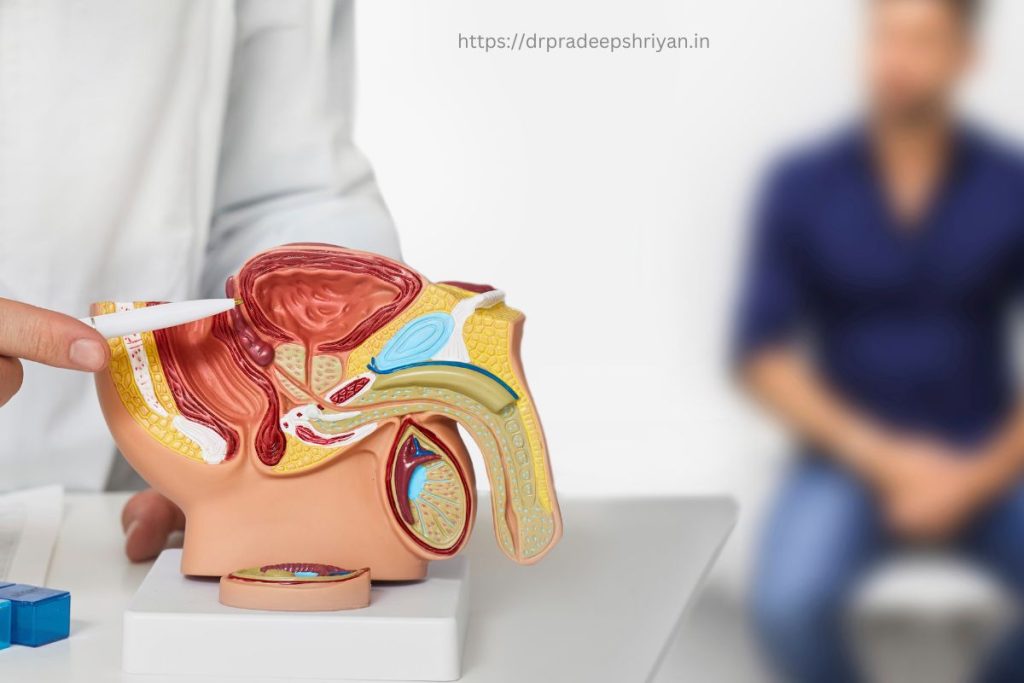April 13, 2024
It’s normal to have some worries about proper care following Circumcision surgery. For a sensitive procedure like a circumcision, avoiding post-op complications is important.
In this blog, we will share advice on infection prevention, wound care and hygiene for optimal recovery after a circumcision.

Medically termed ‘circumcision’, this common outpatient operation removes the fold of skin (foreskin or prepuce) covering the head (glans) of the penis. Reasons for undergoing it include:
Using precise techniques, surgeon excise the foreskin before closing the penile skin with dissolvable sutures and a protective dressing.
While circumcision itself carries minimal risks, proper aftercare plays a key role in preventing the common concerns like:
We provide all patients these tips to follow while healing:
Gently clean only the skin around the stitches with mild soap and warm water whenever changing bandages as advised. Don’t remove dressings entirely until cuts fully close around a week later. Always pat dry and apply prescribed ointments and fresh gauze.
2. Wear Loose Undergarments
Wear loose, breathable cotton underwear to avoid chafing the sensitive healing penis. Tight synthetics that trap moisture or rub can delay healing.
3. Monitor for Signs of Infection
Watch for abnormal symptoms signalling infection like uncontrolled bleeding, expanding redness, swelling or pus-like discharge requiring prompt care. Report fever, pain on urination or any concerns.
4. Take Medications as Directed
Proper rest, hydration and over-the-counter pain relievers can relieve post-op discomfort. But strictly follow directions on any prescribed antibiotics or wound creams as well.
5. Limit Bathing
Avoid baths or showers until dressings come off around 5-7 days later. Even after, limit water exposure for 2 weeks while healing internally and externally.
6. Follow Wound Care Advice
Rely only on my personalized guidance for scar care, cleaning procedures and prescribed ointments until you fully recover in 4-6 weeks. Don’t self-treat or take casual advice.
7. Revisit as needed
We will schedule follow-ups to check your healing, probably at 1 week, 2 weeks and 6 weeks post-op. But visit earlier if concerning symptoms emerge requiring prompt care. Don’t hesitate to call or see the Surgeon or Urologist for any queries or issues either.
Vigilance is vital in the days following circumcision. Recognizing the early signs of infection can lead to prompt intervention and prevent complications.
Signs of Infection:
In addition to proper hygiene and medical guidance, certain lifestyle adjustments can contribute to a smoother recovery process.
Lifestyle Tips:
The initial healing typically takes one to two weeks. However, complete recovery and the return to regular activities may take a few weeks more.
Some discomfort is expected, but severe or prolonged pain should be discussed with your Circumcision Specialist (General Surgeon or Urologist).
It’s advisable to avoid strenuous activities for several weeks. Your Circumcision Specialist will provide personalized guidelines based on your recovery progress.
While modern techniques make circumcisions low risk, dedicating care as advised while recuperating prevents the rare chance of complications.
Don’t hesitate to consult the General Surgeon or Urologist regarding the procedure, aftercare or any healing concerns. This comprehensive guidance ensures recover comfortably and return to normal life quickly.
Developed by PRAZONE Web Solutions
Copyright © 2024 All rights reserved by
Dr Pradeep Shriyan